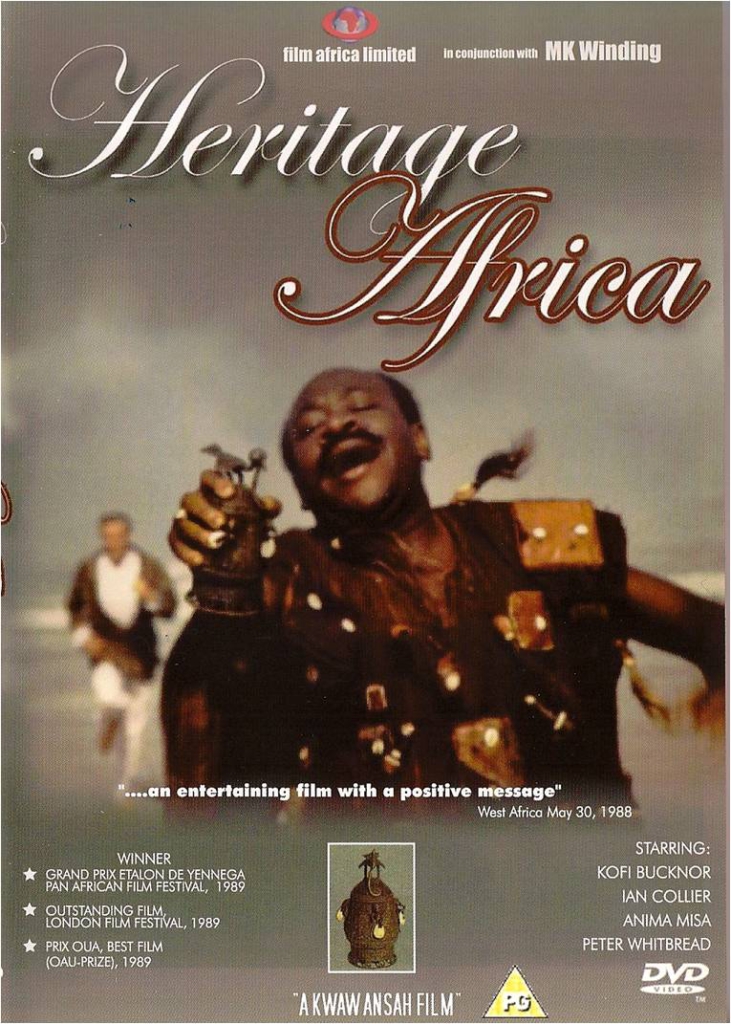Movie making, several decades after its interception into Ghana, has seen several changes and some amazing productions.
Introduced in the early Gold Coast era, Film in Ghana can boast of talent exportation and exposure, and some globally applauded indigenous projects.
Over these periods, the film industry in Ghana has treated citizens to some amazing and breathtaking movies after its very first independent movie ‘Love Brewed In An African Pot’ directed by Kwaw Ansah and followed by a King Nana Ampaw film, ‘Kukurantumi Road To Accra’.
It still comes across as a surprise to most young Ghanaians who grew at the very latter part of the 20th century and the early part of the 21st century finds it difficult to believe there were movies in the ’90s.
Maybe because there are many colorful and vibrant streaming sites, quality definition televisions, smartphones, computer gadgets, and high technology cinemas make the notion of movies in an era where these items never existed an impossible thing.
The truth is, there were classic productions that will blow your mind, and here are a few of them;
The Boy Kumasenu
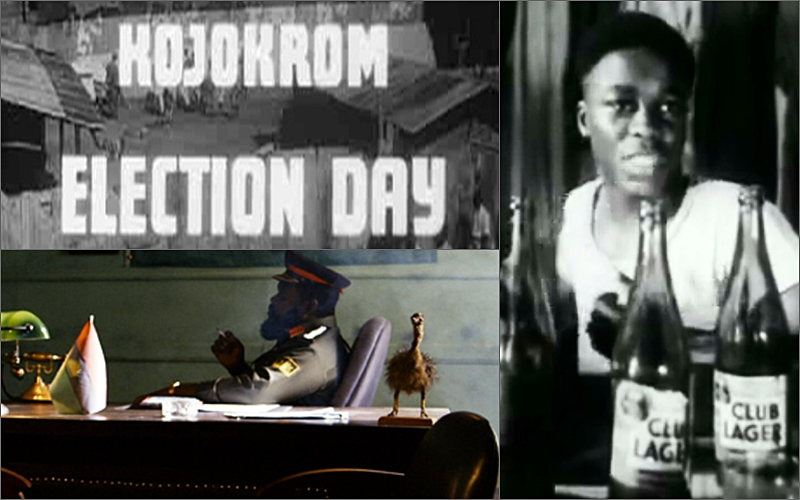
The Boy Kumasenu was the first feature film made by the Gold Coast Film Unit, which sought to produce both educational and informative films for distribution in Ghana and abroad.
The director was Sean Graham, who was a student of documentarist John Grierson, though Graham preferred to work more in the idioms of popular cinema.
Musician Guy Warren was one of the actors, playing the role of Yeboah.
It was filmed in 1950 and 1951 in Accra, Kedze and Keta, with a non-professional cast, and edited in London.
It was premiered in Ghana in 1952 but the makers had trouble getting it distributed in Ghana, due to a belief that Africans preferred escapist films.
I Told You So
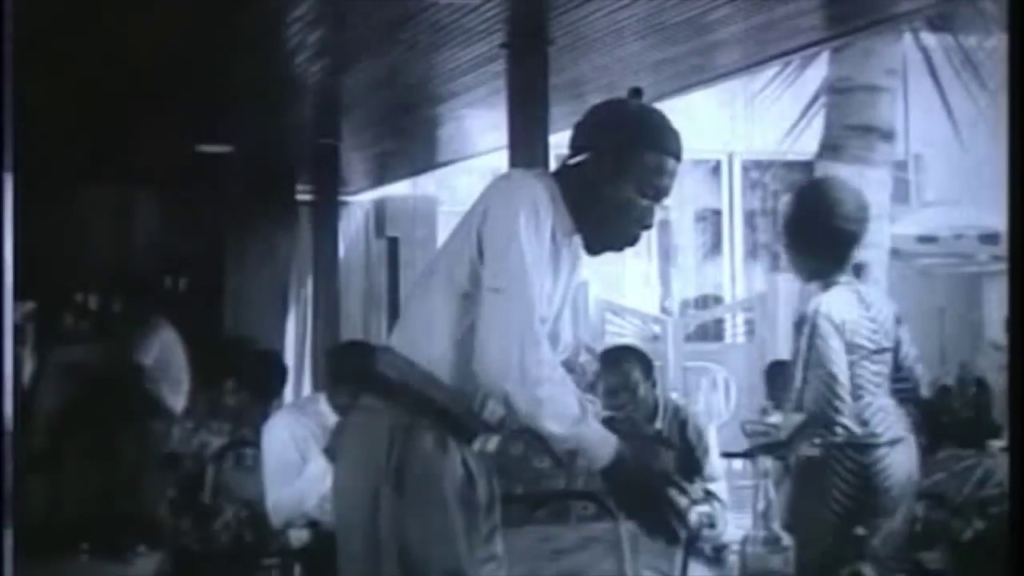
I Told You So is a 1970 Ghanaian movie. The movie portrays Ghanaians and their way of life in a satirical style.
It also gives insight into the life of a young lady who did not take the advice of her father when about to marry a man she did not know anything about, but rather took her mother’s and uncle’s advice because of the wealth and power the money has.
The young lady later finds out that the man she is supposed to marry was an armed robber.
She was very upset of the whole incidence, her dad ask what happened. She told him that the man she is supposed to marry is an armed robber; her father ended by saying “I told you so”
The film featured Lord Bob Cole, Agya Ntow and Araba Stamp.
Love Brewed In An African Pot
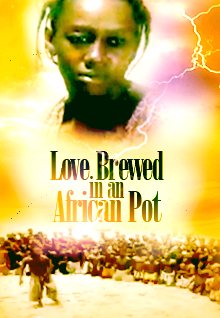
Love Brewed in the African Pot is a 1980 Romantic Drama Ghanaian film directed by Kwaw Ansah. It was reportedly the first privately financed Ghanaian feature film and is considered a classic.
The film takes place in Ghana during the colonial period.
Aba Appiah, a woman born to a family of privileged settlers, falls in love with Joe Quansah, a fitting mechanic and son of a simple fisherman.
Aba’s father, Kofi Appiah, a retired civil servant, is opposed to their marriage, which goes against his plans for his daughter, to whom he had already chosen a husband.
This family conflict leads to complex and unforeseen consequences.
Kukurantumi Road To Accra
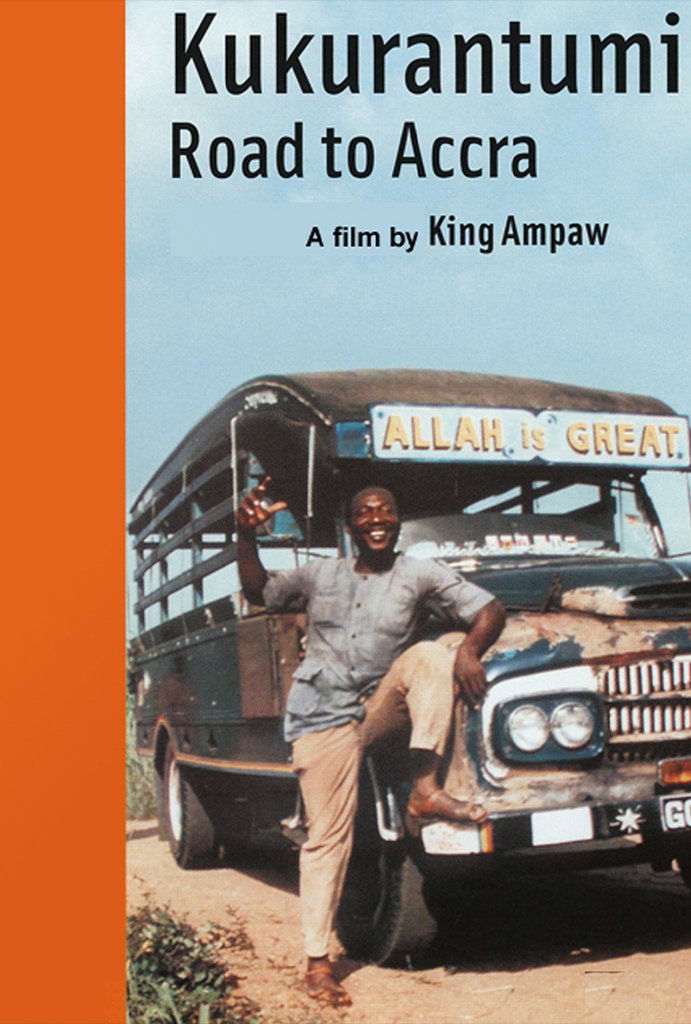
Kukurantumi: Road to Accra was produced in 1983. It is said to be one of the first Ghanaian films to be aired on many European countries’ television.
It was directed by King Ampaw.
Addey, a hard-working family man makes his living driving a lorry between Accra, the capital, and his small village of Kukurantumi, which, in a local dialect, means the place where everything is too heavy to pick up.
When he is dismissed from his job for reasons beyond his control, Addey arranges a marriage between his pretty daughter, Abena, and a rich, middle-aged businessman she doesn’t love.
Abena rebels and, with Bob, the poor young man she loves, runs off to Accra where things go from bad to worse.
Kukurantumi: Road to Accra is a comparatively lively, good-humoured film about a very sad subject – the breakdown of family relationships under the pressures of what’s called progress.
Zenabu
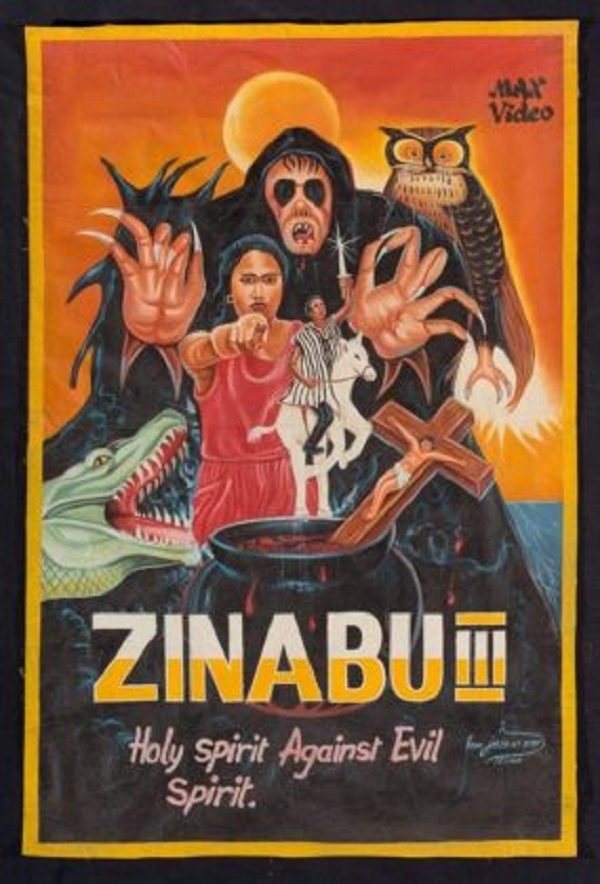
Zinabu tells the story of a witch converting to Christianity.
The film was shot in 1985 using a video camera, rather than a film camera.
Video was a relatively new medium at the time, but Akuffo recognised the advantage that video footage had over film, as film celluloid was more expensive and presented challenges for distribution.
Zinabu became the first Ghanaian movie to be produced on video.
Zinabu was the first Ghanaian video feature, beginning a new form of indigenous film production that would grow in the early 1990s. In 1988, two video films were released, but this grew to seven in 1991 and over 50 in 1993.
Akuffo also produced three sequels to Zinabu
Heritage Africa
Heritage Africa is Ghanaian movie which was produced and directed by Kwaw Ansah in 1989.
A young man called Kwasi Atta Bosomefi who is a public servant during the colonial period rose up to the ranks power because of his relationship with the colonial masters.
He also changed his name from Kwasi Atta Bosomefi to Quincy Arthur Bosomfield abandoned his culture and heritage and adopting that of his colonial masters.
Matters of The Heart

Matters of The Heart is a 1993 Ghanaian love story.
This love story was one that brought couples together and they enjoy themselves as they watch the movie
The movie emphasised on two love birds who were madly in love with each other, Nico in the movie was deeply in love with Sekina. Nico’s family would not agree to the relationship between the two love birds.
The reason was Sekina was from a very poor background and Nico was from a wealthy family and his family won’t agree with their relationship.
Sankofa
Sankofa is a 1993 Ethiopian-produced drama film directed by Haile Gerima centered on the Atlantic slave trade.
The storyline features Oyafunmike Ogunlano, Kofi Ghanaba, Mutabaruka, Alexandra Duah, and Afemo Omilami.
The word Sankofa derives its meaning from the Ghanaian Akan language which means to “go back, look for, and gain wisdom, power and hope,” according to Dr. Anna Julia Cooper.
The word Sankofa stresses the importance of one not drifting too far away from one’s past in order to progress in the future.
In the film, Sankofa is depicted by a bird and the chants and drumming of a Divine Drummer.
Gerima’s film showed the importance of not having people of African descent drift far away from their African roots.
Escape to Love

A young man from a rich family falls in love with the daughter of a ‘Waakye’ seller.
This film featured Kwame Sefa Kayi, Grace Nortey, Michael Moncar and Solomon Sampah.
Cracked Illusions

A Senior High School Girl denounces her family because they are poor. This film featured Regina Pornotey.
Diabolo
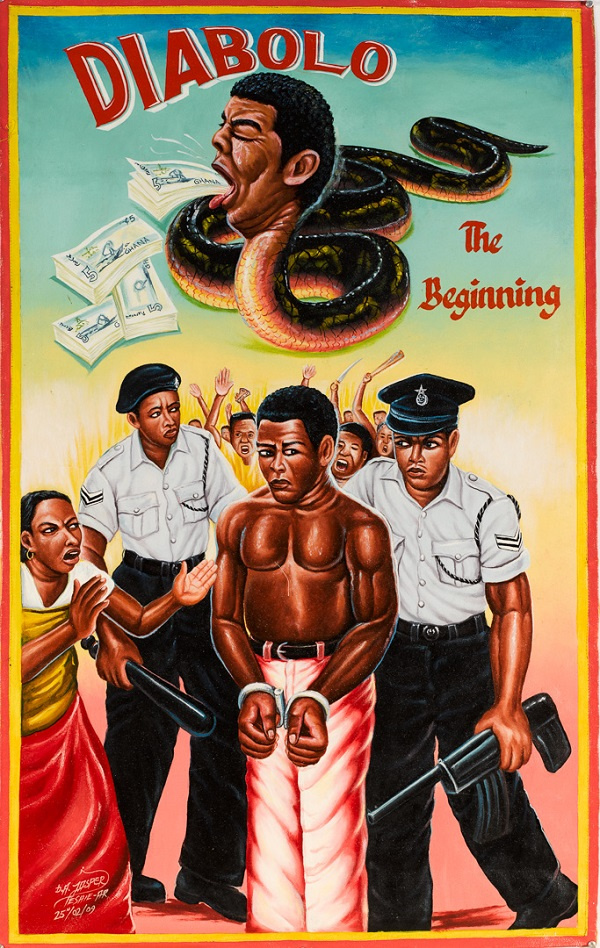
The popular film released in 1992 is a Ghanaian classic movie that tells a story of a man who has the power to transform into a serpent.
He uses this power to sexually assault and kill women, mostly prostitutes. This role was played by Bob Smith Jnr, now referred to as Diabolo Man or Snake Man in the acting circles.
Other actors in the film were, Rev. Eddie Coffie, Eunice Banini and Prince Yawson known as “Waakye”.
The film has also been studied as an example of a Pentecostal influence in Ghanaian film.
Deadly Voyage
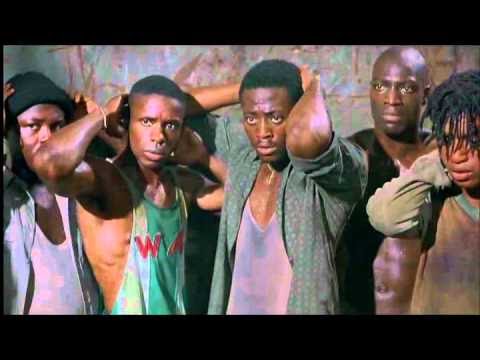
board the cargo ship MC Ruby, docked in New York City, six stowaways burst from one of the containers being unloaded.
They flee from the ship, but are apprehended by dock workers and the New York police.
The MC Ruby‘s Ukrainian crew watches the detention with some amusement, but the ship’s captain and his first mate, Ion Plesin, are displeased, aware that the illegal immigrants will cost the shipping company hundreds of thousands of dollars in fines.
In response, company representative Andreas Vlachos arrives to oversee future operations and warn that the crew will be liable for any more such fines.
Crossfire

When jealousy builds up between two close friends, continuous tragedies befall the kind hearted one and it will take God’s divine intervention and a wife’s tough heart to set him free.
This film features David Dontoh, Grace Omaboe, Super OD and Victor Lutterodt.
The post Throwback Thursday: Remembering some classic Ghanaian movies appeared first on MyJoyOnline.com.
Source: JoyOnline
